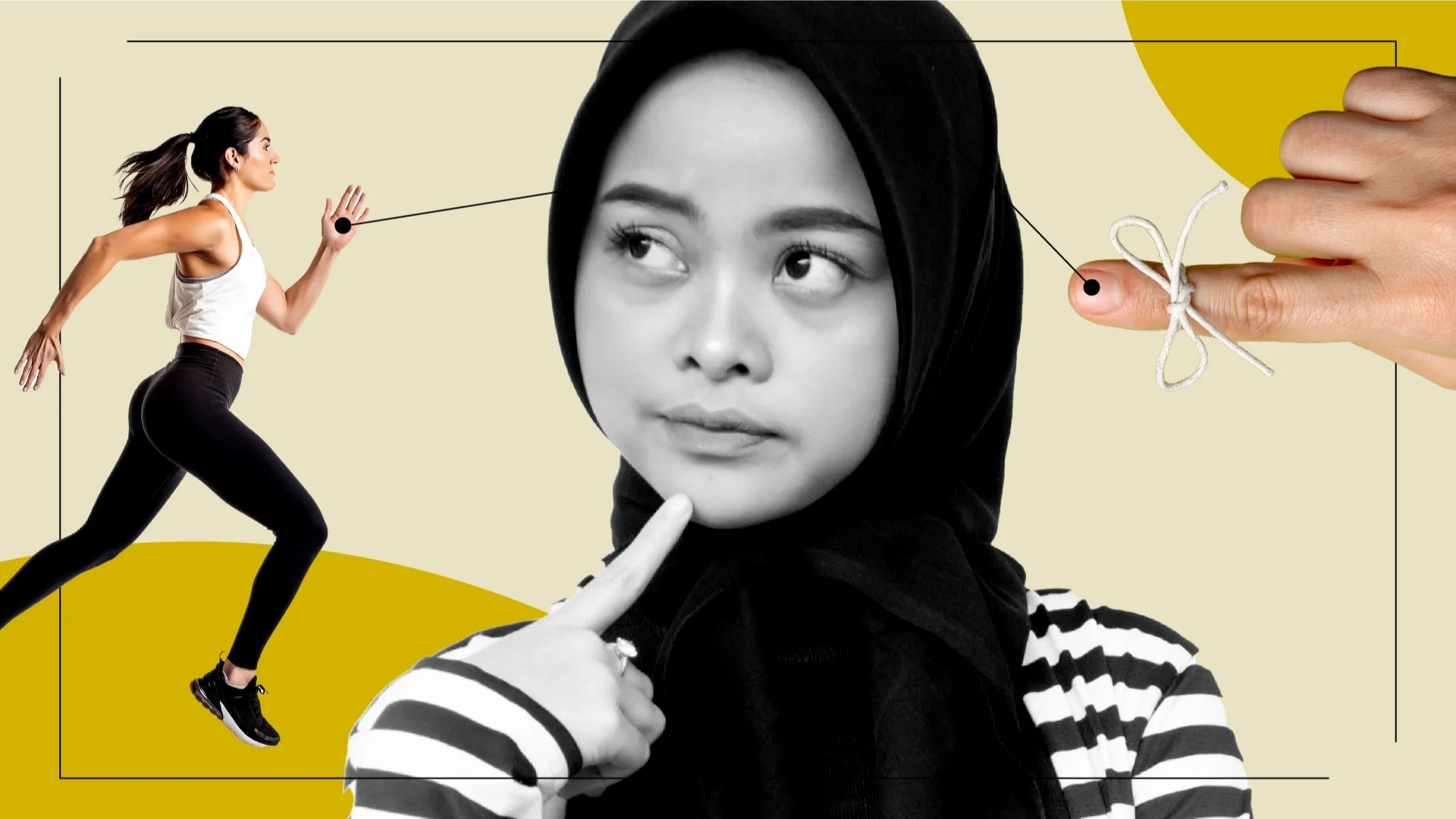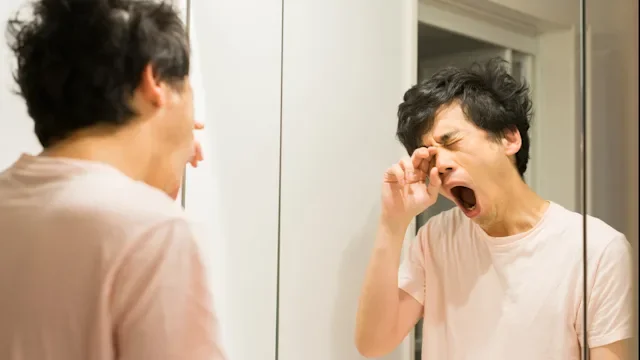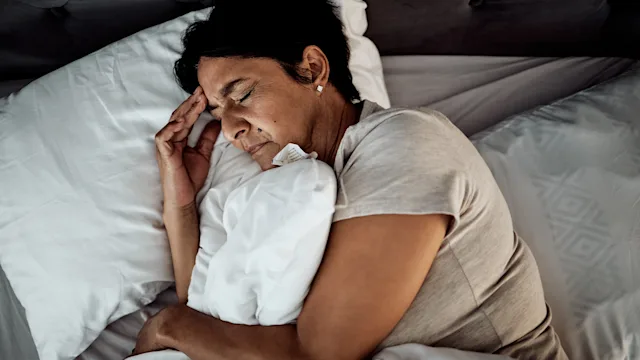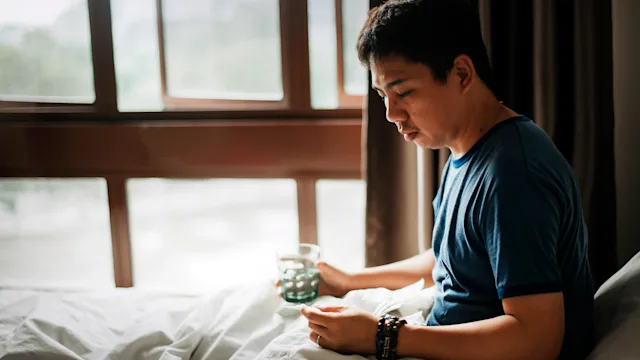Key takeaways:
Insomnia, that feeling of not being able to fall or stay asleep, can be exhausting.
People who have experienced insomnia tell GoodRx it can leave them anxious, depressed, and irritable.
Having a sleep routine, journaling, and meditation are some ways they find relief.
Sleep disorders affect about 70 million Americans. As many as 40% of adults deal with insomnia — which makes it hard to fall or stay asleep.
Insomnia has short- and long-term effects. In the short term, it makes people feel tired, and tired people tend to be more irritable, less productive, and more prone to accidents. Long-term sleep loss, meanwhile, has been linked to a wide range of health problems, including diabetes, heart attacks, mood disorders, and weight gain.
Beating insomnia often requires behavior and lifestyle changes, such as diet adjustments and cognitive behavioral therapy. Sleep medications are also an option.
Search and compare options
Three people told GoodRx their stories of sleeplessness. They also shared techniques and products that help them find rest.
A sleep routine can put you in the right mindset
Stephanie Freitag has had sleep issues since elementary school.
“I was the only 8-year-old I knew who couldn’t fall asleep until after midnight,” says Stephanie, now a 33-year-old licensed clinical psychologist in New York.
Insomnia, she says, “feels like my mind is going a mile a minute and my body is in fight-or-flight mode. I’m ready to run a marathon, but really I’m supposed to go to bed.”

Being unable to fall asleep causes anxiety and stress, she says. Some people also develop a fear of bedtime, knowing a fight against insomnia awaits them.
Having a healthy sleep routine is a game-changer, Stephanie says. She doesn’t drink caffeine in the afternoon, she exercises as often as she can, and she avoids heavy meals later in the day. She needs about 2 hours to decompress before falling asleep. During that time, she’ll relax by cuddling her dog, taking a shower, or diffusing lavender oil.
Other soothing activities include bathing, reading or watching TV, and having a cup of tea or a light snack.
“I need my mind to shut down a little bit,” she says.
Once in bed, she has a self-talk routine that further relaxes her. She takes time to appreciate the soft blankets covering her, the comfortable pillow under her head and the safety of her bedroom.
“It’s really that meditation that changed my relationship with sleep,” Stephanie says. “When I can’t sleep, I repeat to myself how lucky I am to have this space and how grateful I am to have 8 hours to just relax. Expressing gratitude and being present in the moment promotes a positive mood and relaxation. At a certain point, my mindset shifted: I don’t resent this time anymore.”
Stephanie says this change in mindset has been key in helping her fall asleep.
“Insomnia really messes with your mind, but if you can shift it in small ways, you’ll have a better relationship with sleep,” she says.
Try keeping a story going in your mind as you drift off
Even when Bradley Wyss is physically exhausted, his brain doesn’t let him fall asleep easily. On a good night, he says, he’ll drift off in about 30 minutes and get about 7 hours of sleep. On a bad night, he remains awake for hours, sometimes leaving his bed to read a book or clean the house, and he clocks only about 4 hours.
"When I start to fall asleep, my brain realizes I’m going from consciousness to unconsciousness, and it doesn’t want that,” says Bradley, 29, who lives in Missoula, Montana, and works as a quality-assurance lab technician at a mill that manufactures composite wood. “So it wakes me up, and that keeps going on and on and on. I’m always thinking.”
Bradley’s job requires him to work shifts that alternate weekly between day and night. He estimates that he goes to work feeling tired at least half the time.
“It really affects memory the most,” he says. “On days I get good sleep, my memory works very well. On days I don’t, I’ll forget what I was just going to do or things people tell me. I forget plans.”

Bradley doesn’t nap because he knows it will take him at least 30 minutes to fall asleep, meaning he’ll need at least an hour for a 30-minute nap. He might be able to nap during his lunch hour if it didn’t take him so long to fall asleep.
Bradley has tried the traditional “go to sleep” tricks, like counting sheep, but they haven’t worked. He has developed a trick of his own, however. He’ll imagine himself in a scenario, creating a storyline that will follow him into his dreams.
“I make a story in my head and try to keep that story going,” he says. “I’ll eventually pass out and start dreaming of that.”
Journaling and meditation can help
Méline Nadeau, a 55-year-old health and wellness writer, says she’s had sleep problems since she was in middle school.
“I would lie awake long after my mother and father had gone to bed, listening to every sound and staring into the darkness,” she says. “I felt lonely, afraid, and miserable. The pit of my stomach would ache — with hunger? Loneliness? Grief? Who knows. Meanwhile, my head pounded from sheer exhaustion and lack of sleep. Why couldn’t I just fall asleep like everyone else?”

She remembers listening to her dog’s soft snuffles and her parents’ slow, deep breathing. She couldn’t get her brain to turn off.
As an adult, she found that the global pandemic in 2020 made her sleep problems worse. She felt fear, financial hardship, and the grief of being away from family. Her father was dying of Alzheimer’s Disease and only her mother was allowed to visit him in the final year of his life until the very end.
“That kept me awake for days on end,” she says. “I would lie awake worrying, tossing and turning.”
She began blogging about her insomnia. That has grown into a sleep wellness resource site, and it helped her find a community.
“What started off as a way to deal with my insomnia became a new calling,” she says. “I have since become a sleep coach and devote myself to writing about health and wellness issues.”
Méline has found that journaling and meditation help her let go of her day. Before bed, she writes down thoughts, to-do lists, and worries. Writing things down helps her take her mind off them and drift off to sleep.
What does the doctor say?

Patricia Pinto-Garcia, MD, MPH
Medical Editor
Insomnia is such a difficult condition to live with. Not getting enough sleep can impact your health in many ways — from making it hard to function at work or school to lowering your immune response and increasing your risk of chronic medical conditions. Your mental health also suffers. Not getting enough sleep can make you irritable, short tempered, anxious, and depressed.
People with insomnia usually know that the condition is taking a toll on their physical and emotional health. Worrying about how the lack of sleep is playing havoc on your system can make it even harder to fall asleep, which only makes everything worse.
If you’re experiencing insomnia, especially chronic insomnia, get help at an accredited sleep center. Sleep centers bring together specialists from different disciplines who can help you take control of your insomnia. Treatments for insomnia vary from person to person, and you deserve a team that will take your unique needs into account when creating your plan. Check out the American Academy of Sleep Medicine’s sleep center finder to get information on providers near you.

Why trust our experts?

















